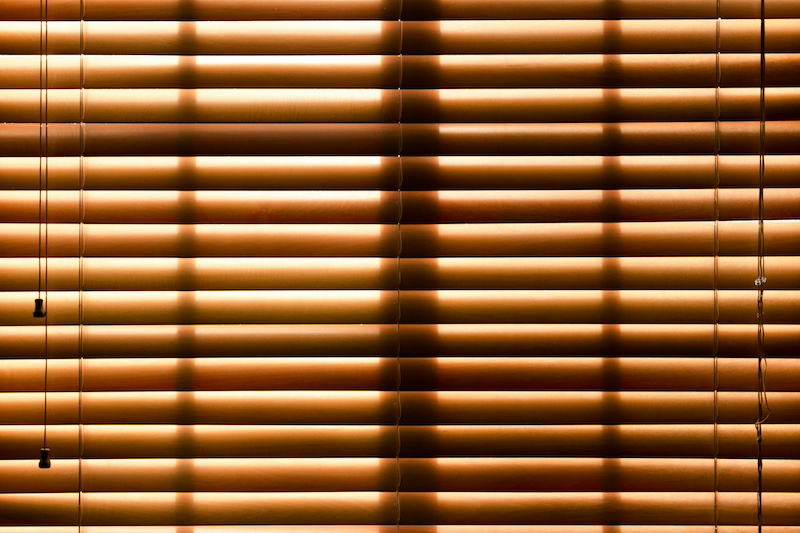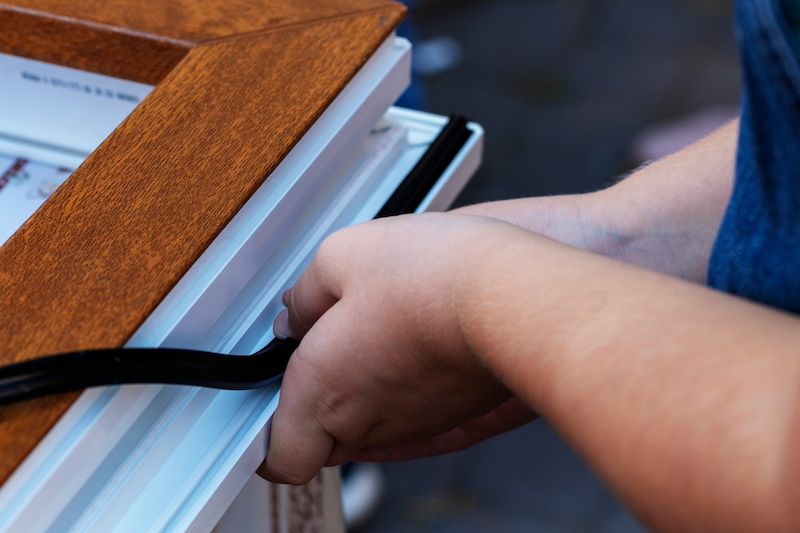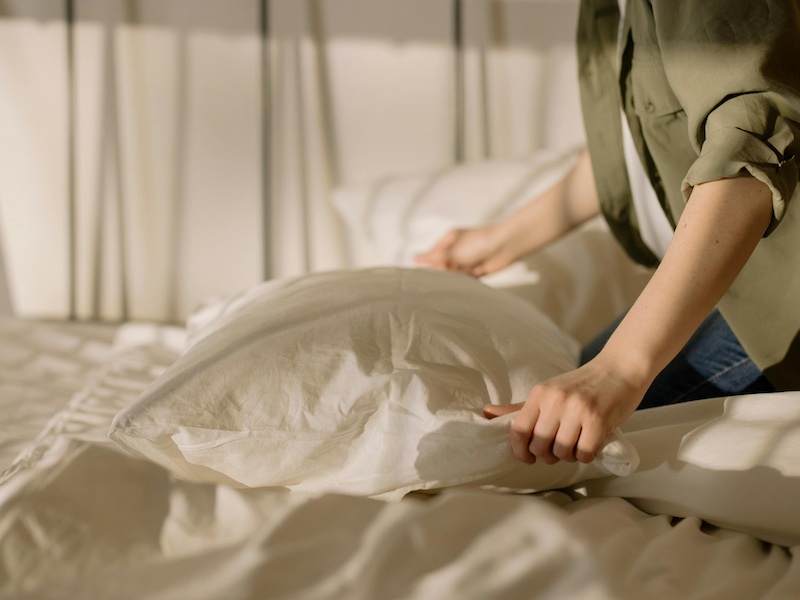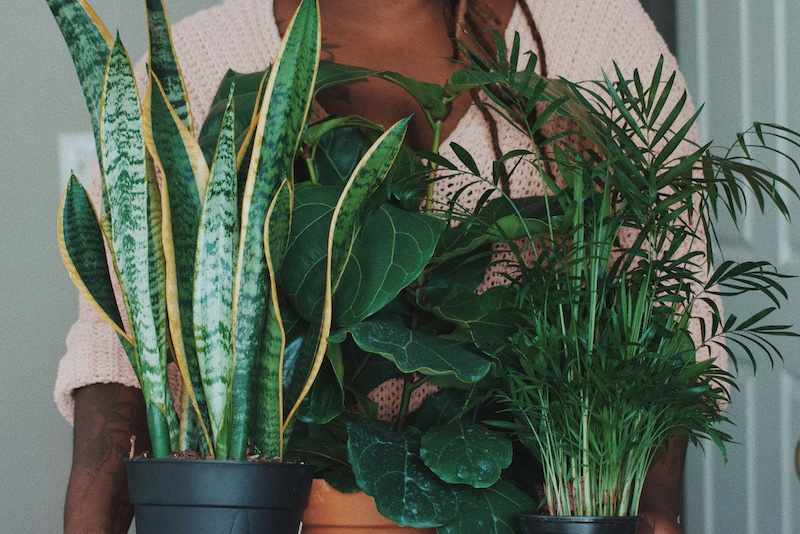- 1. Position your fans strategically
- 2. Set your ceiling fans to rotate counter-clockwise
- 3. Turn on your built-in exhaust fans
- 4. Block incoming sunlight
- 5. Apply window films
- 6. Improve your insulation
- 7. Reduce the use of hot appliances
- 9. Open your windows at night
- 10. Go for cool bedding
- 11. Don’t be afraid to keep your AC running
- 12. Unplug your electronics
- 13. Get large houseplants
- Once you cool down…
Summers aren’t exactly getting cooler—a fact that you probably know all too well if you live in a small apartment without central air conditioning. And there are numbers to back it up: In a recent study, Climate Central found that summers have warmed an average of 2.4° F across 229 U.S. locations since 1970.
But there’s good news! You don’t necessarily need an expensive AC system to chill out amid the sweltering heat (although no judgment if you’re already running your window unit at full blast).
- If you use air conditioning, it could actually be better for your utility bill to keep the AC running while you use it, rather than intermittently turning it on and off.
- You can create good, cold air flow in your rental without AC—by strategically positioning portable fans, setting ceiling fans to rotate counter-clockwise, and turning on kitchen and bathroom exhaust fans when you get home.
- Check with your landlord before making any modifications to your rental to help cool it down—like weather stripping the doors and windows.
Try out these 13 tips to keep your apartment cool on sizzling summer days.
1. Position your fans strategically
Even if you don’t have air conditioning, you can still catch a good chill by positioning your fans to optimize air circulation.
Here are some hacks for keeping that cold air flowing:
- Set up your fan next to an open window: This will pump cooler air from outside into your hot apartment
- Create a cross-breeze: If you have two fans, you can create a stronger breeze by placing them opposite each other
- Place frozen bottles of water, a bowl of cold water, or a wet towel in front of your fan to make it blow cooler air
- Close the doors to rooms not in use so that air can better circulate throughout your apartment
If you’re ready to embrace the breeze, here are some of the best energy-efficient portable fans ranging from $60 to more than $600.
2. Set your ceiling fans to rotate counter-clockwise
In addition to optimizing your portable fans, you can make the most out of your ceiling fans by setting them to rotate counter-clockwise. This creates a breeze by pushing cool air downwards. You should be able to flip a switch in the fan’s motor to adjust the direction.
And, on the flipside, during the cold winter months you can set your ceiling fan to go clockwise at low speeds for a warming effect.
3. Turn on your built-in exhaust fans
The exhaust fans in your bathroom and kitchen aren’t just built to filter out smoke and smells–they also filter out hot air. Turn them on right after you get home for the quickest cooling effect.
4. Block incoming sunlight

There’s nothing like a little natural light to boost your mood, but, on a hot day, too much sun can be downright oppressive. Keep your blinds or curtains closed during the sunniest parts of the day, particularly on windows that face east in the morning and west in the afternoon. (If you aren’t sure which direction your window faces, you can easily check on your smartphone’s free compass app.)
For optimal sun protection, consider investing in blackout curtains or cellular shades, such as some of these energy-efficient options.
5. Apply window films
If you’d prefer not to block out all the natural light, you can still enjoy a bit of brightness by installing window films—which work by reflecting and absorbing solar energy so that it can’t invade your space. They even block up to 99% of UV rays, protecting you and your furniture from sun damage.
Made of clear, polyester laminate, window films can be stuck right onto your interior window sill. Some varieties must be applied on top of a soapy solution while other kinds of films are naturally adhesive.
Check out the pros and cons of using window films—which can range in cost from roughly $6 to $14 per square foot.
6. Improve your insulation

You might think that good insulation is only necessary for winterizing your apartment, but it can actually be a great help in the summer too. Just as insulation blocks out cold air in the winter, it works to block out hot air in the summer months.
In addition to applying window films (which are technically also a form of insulation), consider weather stripping your doors and windows to seal any gaps where hot air can leak. You might also consider filling in any smaller holes in your windows with caulk or spray foam.
And the best part? You can find weather stripping, spray foam, and caulk for under $20 each, and all can be applied on a DIY basis (with, okay, maybe a little help from YouTube).
Keep in mind that you’ll need to run any insulation measures by your landlord before applying it, since doing so would be considered a modification to your rental property.
7. Reduce the use of hot appliances
Hot appliances like ovens, stovetops, and dryers can generate additional heat in your home, wasting energy and interfering with your other cooling efforts.
Consider using a fan (or even the abundantly available hot air) to dry your clothes, and use alternative cooking appliances, like microwaves, air fryers, slow cookers, and outdoor grills.
If you can’t avoid cooking, you can still limit your appliance usage by cooking during the coolest part of the day and prepping meals in advance. But, when it’s boiling outside, hot food might not even be the vibe: You’re probably craving a no-cook dish, like a collagen smoothie or a refreshing gazpacho.
8. Opt for energy-efficient light bulbs
Replacing your regular light bulbs with energy-efficient ones, like LED bulbs, can significantly reduce the amount of heat produced inside your apartment. Traditional incandescent bulbs drive up temperatures by converting a large portion of the energy they use into heat. Energy-efficient bulbs, on the other hand, use around 75% less energy than traditional bulbs and last up to 25 times longer, according to the Department of Energy. Lowering your utility bills and your carbon footprint just by changing up your light bulbs? That’s a win-win.
For more earth (and budget)-friendly tips, check out our full list of ways to lower your energy bill.
9. Open your windows at night
If it’s safe enough to do so, leaving your windows open while you sleep at night can create natural ventilation and significantly lower your apartment’s temperature. (Just don’t forget to close them when it heats up the next day.)
As we mentioned above, situating a fan in front of an open window is another way of coaxing cool evening air into your hot apartment.
And, to keep the critters out while the windows are open, consider applying a mesh window screen. Window screens are easy to install and generally range in price from $10 to $50, depending on how much mesh you need.
10. Go for cool bedding

Fending off high temperatures in the daytime is one thing, but there’s nothing as frustrating as a sleepless night in the stifling heat. Fortunately, you can mitigate the worst of this discomfort with some strategically chilly bedding.
Consider investing in a cooling sheet set made from breathable fabrics, like cotton or linen, which allow air to circulate and absorb moisture. If you’re a sweaty sleeper, you might want to invest in a set of moisture-wicking sheets.
You can also purchase a cooling gel pillow or an aptly-named “chillow” insert—that run about $10 to $20 a pop—to keep your face nice and cool throughout the night.
Or, if you’re looking to chill out in a pinch, try putting your sheets and pajamas in the freezer a few hours before bedtime, and make your bed right before you’re ready to hop in. (Just don’t leave them in there for too long!)
11. Don’t be afraid to keep your AC running
If you have a window AC unit, you probably ask yourself this question in anticipation of your utility bill—to run the AC, or not to run the AC? Keeping your unit running might not be as bad as you think.
While leaving your air conditioning on when you go out is definitely more expensive than turning it off, HVAC experts report that turning the AC on and off repeatedly can overtax the system and end up costing more. So if you work from home all day but are worried about the utility bill, don’t be afraid to enjoy the breeze for longer periods. It might even end up being cheaper.
And, if you have a dog, run your AC liberally, since it’s essential to keeping them comfortable at home on hot summer days.
12. Unplug your electronics
Large electronics draw a lot of power when plugged in, even if they’re turned off. So unplug your TV, computer, or gaming console during the hottest part of the day to avoid generating excess heat. You can also unplug smaller things like chargers and lamps to minimize the effects of electric heat.
13. Get large houseplants

Did you know that being a plant parent can help reduce the temperature in your apartment?
We aren’t scientists, but according to some experts at NASA, plants cool the areas they occupy by releasing moisture into the air. The natural evaporation of water from leaves adds humidity to the room, making the air feel cooler. Plus, plants provide shade and absorb heat, which can also help reduce temperatures.
Keep in mind: Bigger plants have a greater cooling effect than smaller ones since they have more surface area, which means they also release more moisture into the air. Some of the best plants for maximizing coolness include:
- Ficus trees
- Ficus rubber plants
- Snake plants
- Areca palms
And, although it depends on the specific care each plant requires, plants typically have the greatest cooling effect when placed near windows or in direct sunlight where they can absorb the most heat.
Once you cool down…
If your rental lacks central air or even AC altogether, these hacks can help drive your thermostat—and utility bill—down.
And now that you’ve safeguarded your rental from the heat, why not kick back, relax, and protect your stuff with renters insurance? A Lemonade renters insurance policy covers your personal property against theft and damage, plus covers legal claims for damage or injury you accidentally cause others.
The dog days of summer can drag on, but you can get a renters insurance quote in seconds—without breaking a sweat.
A few quick words, because we <3 our lawyers: This post is general in nature, and any statement in it doesn’t alter the terms, conditions, exclusions, or limitations of policies issued by Lemonade, which differ according to your state of residence. You’re encouraged to discuss your specific circumstances with your own professional advisors. The purpose of this post is merely to provide you with info and insights you can use to make such discussions more productive! Naturally, all comments by, or references to, third parties represent their own views, and Lemonade assumes no responsibility for them. Coverage and discounts may not be available in all states.




